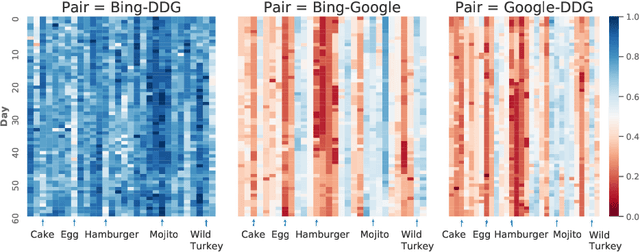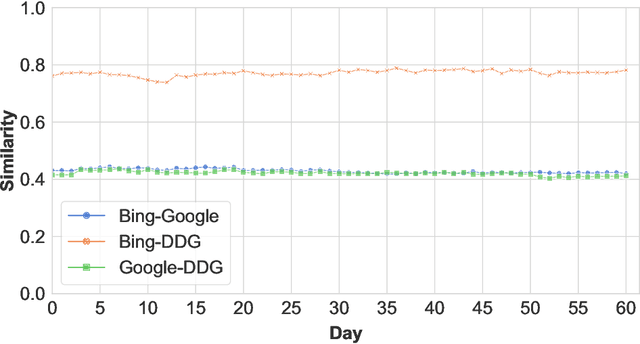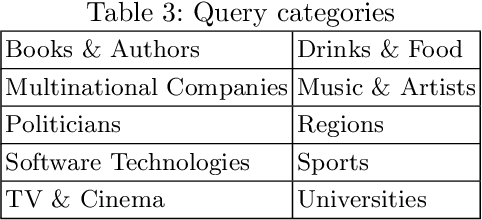Konstantina Dritsa
A Greek Parliament Proceedings Dataset for Computational Linguistics and Political Analysis
Oct 23, 2022Abstract:Large, diachronic datasets of political discourse are hard to come across, especially for resource-lean languages such as Greek. In this paper, we introduce a curated dataset of the Greek Parliament Proceedings that extends chronologically from 1989 up to 2020. It consists of more than 1 million speeches with extensive metadata, extracted from 5,355 parliamentary record files. We explain how it was constructed and the challenges that we had to overcome. The dataset can be used for both computational linguistics and political analysis-ideally, combining the two. We present such an application, showing (i) how the dataset can be used to study the change of word usage through time, (ii) between significant historical events and political parties, (iii) by evaluating and employing algorithms for detecting semantic shifts.
Search Engine Similarity Analysis: A Combined Content and Rankings Approach
Nov 06, 2020



Abstract:How different are search engines? The search engine wars are a favorite topic of on-line analysts, as two of the biggest companies in the world, Google and Microsoft, battle for prevalence of the web search space. Differences in search engine popularity can be explained by their effectiveness or other factors, such as familiarity with the most popular first engine, peer imitation, or force of habit. In this work we present a thorough analysis of the affinity of the two major search engines, Google and Bing, along with DuckDuckGo, which goes to great lengths to emphasize its privacy-friendly credentials. To do so, we collected search results using a comprehensive set of 300 unique queries for two time periods in 2016 and 2019, and developed a new similarity metric that leverages both the content and the ranking of search responses. We evaluated the characteristics of the metric against other metrics and approaches that have been proposed in the literature, and used it to (1) investigate the similarities of search engine results, (2) the evolution of their affinity over time, (3) what aspects of the results influence similarity, and (4) how the metric differs over different kinds of search services. We found that Google stands apart, but Bing and DuckDuckGo are largely indistinguishable from each other.
 Add to Chrome
Add to Chrome Add to Firefox
Add to Firefox Add to Edge
Add to Edge